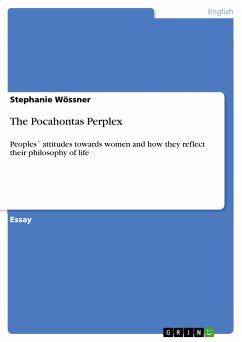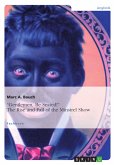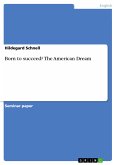Essay from the year 2001 in the subject American Studies - Culture and Applied Geography, grade: 1, University of Tubingen (Amerikanistik), course: PS III Landeskunde – American Native Cultural Studies, language: English, abstract: Peoples´ attitudes towards women and how they reflect their philosophy of life For a long time in European literature there has been the tale of a white man going to a foreign, often exotic country where he faces some kind of trouble or danger. Before losing his life he is rescued by a native woman who falls in love with him and often follows him to his country, adopting his way of life. The best known version of this tale is the national myth of Pocahontas and John Smith, effecting American imagination to a great extent. However, even before Pocahontas showed up Europeans expressed their vision of Indian women as split characters, half evil and half good, in what Rayna Green calls the Pocahontas Perplex. By contrasting Native American and European visions of women this essay claims that the attitude towards Indian women reflects the Native American as well as the European philosophy of life. On the one hand we have a holistic “shame culture”, i.e. based on honor, duty and collaboration, and on the other hand a dualistic “guilt culture” based on property, status and material possessions. The political importance of women in the League of the Iroquois is a model Native American perception of Indian women. In this society the basic unit of government is the “hearth”, comprising a mother and children. Larger units are made up of an otiianer, a word which itself refers to female heirs. Several of these otiianers constitute a clan.
Bitte wählen Sie Ihr Anliegen aus.
Rechnungen
Retourenschein anfordern
Bestellstatus
Storno









